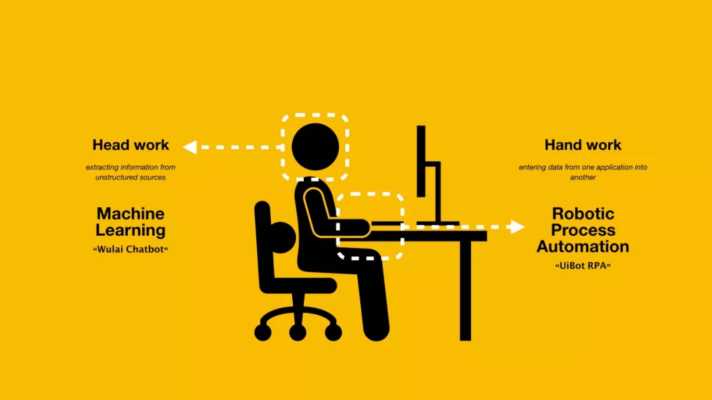Cathay Innovation leads Laiye’s $35M round to bet on Chinese enterprise IT - 4 minutes read
 Cathay Innovation leads Laiye’s $35M round to bet on Chinese enterprise IT – TechCrunch
Cathay Innovation leads Laiye’s $35M round to bet on Chinese enterprise IT – TechCrunchFor many years, the boom and bust of China’s tech landscape have centered around consumer-facing products. As this space gets filled by Baidu, Alibaba, Tencent, and more recently Didi Chuxing, Meituan Dianping, and ByteDance, entrepreneurs and investors are shifting attention to business applications.
One startup making waves in China’s enterprise software market is four-year-old Laiye, which just raised a $35 million Series B round led by cross-border venture capital firm Cathay Innovation. Existing backers Wu Capital, a family fund, and Lightspeed China Partners, whose founding partner James Mi has been investing in every round of Laiye since Pre-A, also participated in this Series B.
The deal came on the heels of Laiye’s merger with Chinese company Awesome Technology, a team that’s spent the last 18 years developing Robotic Process Automation, a term for technology that lets organizations offload repetitive tasks like customer service onto machines. With this marriage, Laiye officially launched its RPA product UiBot to compete in the nascent and fast-growing market for streamlining workflow.
“There was a wave of B2C [business-to-consumer] in China, and now we believe enterprise software is about to grow rapidly,” Denis Barrier, co-founder and chief executive officer of Cathay Innovation, told TechCrunch over a phone interview.
Since launching in January, UiBot has collected some 300,000 downloads and 6,000 registered enterprise users. Its clients include major names such as Nike, Walmart, Wyeth, China Mobile, Ctrip and more.
Guanchun Wang, chairman and CEO of Laiye, believes there are synergies between AI-enabled chatbots and RPA solutions, as the combination allows business clients “to build bots with both brains and hands so as to significantly improve operational efficiency and reduce labor costs,” he said.
When it comes to market size, Barrier believes RPA in China will be a new area of growth. For one, Chinese enterprises, with a shorter history than those found in developed economies, are less hampered by legacy systems, which makes it “faster and easier to set up new corporate software,” the investor observed. There’s also a lot more data being produced in China given the population of organizations, which could give Chinese RPA a competitive advantage.
“You need data to train the machine. The more data you have, the better your algorithms become provided you also have the right data scientists as in China,” Barrier added.
However, the investor warned that the exact timing of RPA adoption by people and customers is always not certain, even though the product is ready.
Laiye said it will use the proceeds to recruit talents for research and development as well as sales of its RPA products. The startup will also work on growing its AI capabilities beyond natural language processing, deep learning, and reinforcement learning, in addition to accelerating commercialization of its robotic solutions across industries.
Source: TechCrunch
Powered by NewsAPI.org
Keywords:
Cathay • Innovation • China • Business • TechCrunch • Business cycle • China • Technology • Consumer • Product (business) • Baidu • Alibaba Group • Tencent • Didi Chuxing • Meituan.com • Entrepreneurship • Startup company • China • Enterprise software • Venture capital • Cathay • Innovation • China • Partnership • Partnership • Mergers and acquisitions • China • Company • Robotic process automation • Technology • Organization • Customer relationship management • Machine • RPA (TV series) • Product (business) • Market (economics) • Workflow • Retail • Retail • China • Enterprise software • Entrepreneurship • Chief executive officer • Innovation • TechCrunch • Telephone • Business • Nike, Inc. • Walmart • Wyeth • China Mobile • Ctrip • Chairman • Chief executive officer • Artificial intelligence • Chatbot • Royal Prince Alfred Hospital • Construction • Chatbot • Market (economics) • Romanized Popular Alphabet • China • Economic growth • China • Business • Economy • Corporation • Investor • China • China • Romanized Popular Alphabet • Competition (economics) • Machine • Rights • China • Time • Republican Party of Armenia • Person • Customer • Product (business) • Research and development • Sales • Rural Payments Agency • Product (business) • Startup company • Artificial intelligence • Natural language processing • Deep learning • Reinforcement learning • Robotics •